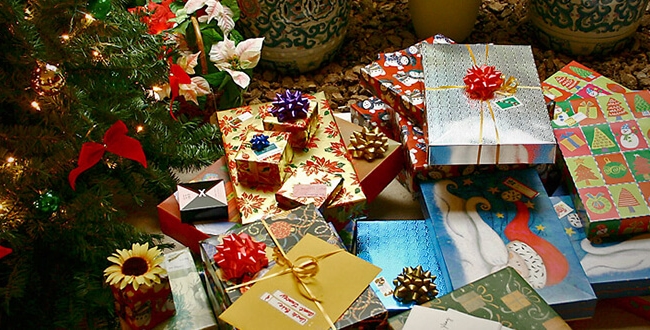By Bob Teoh
This Christmas Santa's gone online more than ever. Consumers are furiously clicking and adding their purchases to their digital shopping carts. This means a sharply increasing use of the buy-now pay-later option. As a result, unpaid card interests are piling up.
If cardholders pay only the monthly minimum, it may take them up to 17 years to clear their hangover. Oh what a Christ-mess! This can't be Christmas surely.
In Australia, according to Finder.com.au, a product comparison website, the COVID-19 pandemic may have changed the way Australians celebrate the festive season this year, but it hasn't put a dampener on Christmas spending.
Meanwhile, according to insurance website Zurich.com.au, Christmas debt hangover could take up to 17 years to repay if a cardholder made only the minimum repayments on a $2,000 card debt.
It also cites a report by the Australian Investments & Securities Commission (ASIC) that as at 30 June 2018 there was more than $900 million in outstanding buy-now pay-later balances. More than two million Australians are actively using credit cards, more than 60 percent are aged 18-34.
In the United States, according to a report on financial website Fortunly.com, 98 million Americans say they overspent this Christmas.
It says mobile devices are at least partly to blame for holiday shopping debt. The report reveals that America's digital spending increased to $723 billion this holiday season – eight percent more than last year.

All this Christ-mess shopping binge can have some pretty bad downside, mainly mental health issues.
When financial stress becomes overwhelming, helpguide.org, an online help lifeline, says it can lead to insomnia or other sleep difficulties, weight gain (or loss), depression, anxiety, relationship difficulties and social withdrawal, among other things.
It also points out that unhealthy coping methods such as drinking too much, abusing prescription or illegal drugs, gambling, or overeating. Money worries can even lead to self-harm or thoughts of suicide.
All this Christmas spending seems oblivious to the global plight arising from the pandemic.
A PBS TV news report points out that "as the coronavirus pandemic tears across the globe, the toll exacted in lives lost and ruined grows by the day. But for those already in need, especially the hungry and the starving, COVID-19 is accelerating their nightmares. David Beasley, executive director of the World Food Program, highlights the magnitude of the problem of how to keep 270 million hungry people fed in a year of crisis which is the worse since WW2."
According to NBC News, food banks in the U.S. have been slammed with hungry families as an estimated 17 million children — many largely cut off from free school lunches — are now in danger of not having enough to eat. That's an increase of more than 6 million hungry children compared to before the pandemic.
So what does it matter whether it's Christ-mess or Christmas?
All three monotheistic religions — Judaism, Christianity and Islam — have their own Scriptures regarding the nativity.
The Hebrew Bible which is reckoned as the Old Testament in the Christian Bible has numerous prophecies about Jesus. All were fulfilled in the Common Era, including those concerning his virgin birth.
The most recent of these Old Testament prophecies particularly regarding the nativity were 700 to 800 years before the birth of Jesus.
Peter Stoner, chairman of the Departments of Mathematics and Astronomy at Pasadena College, considered eight specific prophecies about Jesus and the likelihood of Jesus fulfilling all eight of those prophecies.
The conclusion to his research was staggering. The prospect that anyone would satisfy those eight prophecies was 1017 or 10 to the power of 17, a figure with 17 zeroes. This is more than one chance in a quadrillion. Yet the virgin birth of the Christ came to pass just as it was prophesied.
The Qur'an faithfully recorded the nativity in Surah Maryam (Mary) verses 17-22 six hundred years or so after the event. If it were not so, why would Prophet Mohammad say so?
Perhaps consumers should review their Christmas spending to avoid getting deeper into the snowy quagmire next Christmas. While at that we might as well reflect on what's Christmas all about sans Santa. Therein lies our hope and redemption.
Merry Christmas.
(Bob Teoh is a retired journalist and a missionary.)
ADVERTISEMENT
ADVERTISEMENT


































